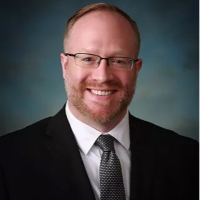Being handcuffed, arrested, and booked is an unpleasant experience at best. For many, being taken into police custody is frightening, even traumatic.
Regardless of guilt or innocence, your rights as an American citizen do not fly out the window following arrest. In fact, at that moment your constitutional rights provide very important protections against an overreaching government. (For example, being arrested when police lacked probable cause to believe a crime was committed.)
Knowing your rights following an arrest can help you avoid making serious mistakes. Mistakes that could lead to admissible direct evidence against you in a criminal trial later on and, possibly, lead to a conviction.

The Miranda Warning
Have you heard of the Miranda Warning? Or the Miranda Rule, Mirandizing, or Miranda Rights? Mirandizing a person in police custody means that he or she has been informed of key constitutional rights guaranteed under the Fifth and Sixth Amendments to the U.S. Constitution. Miranda v. Arizona, 384 U.S. 436 (1966).
Miranda v. Arizona was a landmark case decided by the U.S. Supreme Court in 1966. Although you may not be familiar with the facts of the case, you’ve probably heard the following Miranda Warning:
You have the right to remain silent. Anything you say or do can and will be held against you in a court of law. You have the right to speak to an attorney. If you cannot afford an attorney, one will be appointed for you. Do you understand these rights as they have been read to you?
The High Court in Miranda v. Arizona spelled out the role police must take in protecting the accused individual’s Fifth and Sixth Amendment rights. When the accused person is in custody and subject to interrogation, police must give the Miranda Warning (although the actual language may vary slightly from one state to the next). If the police fail to read the Miranda Warning, then any direct evidence obtained until they do so is inadmissible at trial.
Four Essential Protections
Here are the four essential protections covered by the Miranda Warning:
1. You have the right to remain silent: This means you cannot be forced to speak to the police. Furthermore, if you begin answering questions or explaining what happened (confession), you may stop talking at any time and thereby exercise your right to remain silent. This is part of your constitutional right against self-incrimination.
2. Anything you say or do can and will be held against you in a court of law: The police cannot force you to make statements against yourself. You may refuse to answer questions or point to evidence that could make you appear guilty of some criminal act (or appear to have had guilty intent to commit a crime). Similarly, you can invoke your right against self-incrimination at trial and not testify. Neither judge nor jury can hold your lack of testimony against you as evidence of guilt.
3. You have the right to speak to an attorney: Because you have the right to have an attorney represent you, use your telephone call to contact a criminal defense lawyer who can help.
4. If you cannot afford an attorney, one will be appointed for you: When you cannot afford an attorney, the court must provide a court-appointed defense lawyer to represent you. You also have a right to competent counsel. You can ask for an attorney the moment you are arrested and then exercise your right to remain silent. When you consult with your defense lawyer, he or she will advise you on how best to proceed.
It is important to understand that you may decide at any time to exercise these constitutional rights and not make any statements to the police or answer any of their questions.
Do You Understand Your Rights?
The last part of the Miranda Warning asks: Do you understand these rights as they have been read to you?
Criminal charges should always be taken seriously. If you or a loved one has been arrested, contact a criminal defense lawyer right away.
Colin Bell is a DUI and Criminal Defense attorney in Phoenix, Arizona. He is Of-Counsel with Stewart Law Group with offices throughout Arizona.



